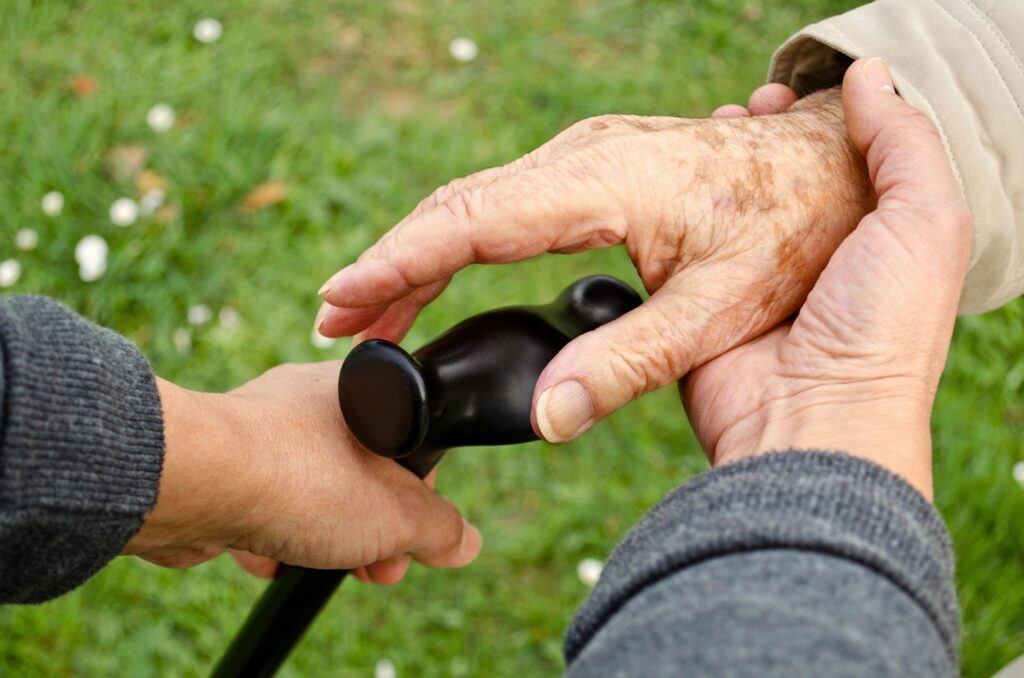The foremost similarity between home based care services is that both types of care are provided to the patient in their own home. The thing that sets them apart from each other is the type of patient that each service is tailored to. The priorities and outcomes of the two types of care can also be quite different.
Hospice is designed to provide medical, social, and spiritual care for the terminally ill patient with the goal of keeping the patient as symptom free as possible throughout the end of their journey. Home Health is aimed at patients who need additional care to reach maximum improvement after illness or surgery. Before we get into the major differences between the services, let’s take a closer look at how they are alike.
What Are The Similarities of Hospice and Home Health?
The number one priority of all home based care services is to provide excellent, compassionate, and patient-centered care. There are several other overlapping goals as well. Here is a list of the main similarities in Hospice and Home Health services:
All care is provided where the patient calls home
One purpose is to ensure care is accessible when homebound
Major goal is to avoid hospitalization
Services end if patient requires hospitalization
Care can resume once patient is discharged from hospital
While there are several important shared goals of both types of services, it is important to note the differences. What separates Hospice from Home Health is the type of medical care the patient receives from each service. For instance, Home Health Care may be considered for rehabilitation or to prevent hospitalization. Hospice is indicated for end of life care for patients with a terminal illness. In the next section, we will discuss the differences between Hospice and Home Health care.
What Is Hospice Care?
Hospice is the care provided for a terminally ill patient who has a life expectancy of six months or less. A doctor must certify the diagnosis as well as the life expectancy in order to qualify for this type of service. Those who elect Hospice care are no longer seeking curative treatment, and do not wish to go to endless appointments. Instead they choose to receive compassionate care in their own home.
Whether home is a private residence, a long term facility, a personal care home etc, the Hospice team travels to the patient. This ensures proper access to medical, emotional, and spiritual care. Often patients are home bound and are unable to continue attending doctor visits; however this is not a requirement to receive Hospice care.
What is Home Health?
Home Health care is the service provided to patients who need skilled assistance to restore or improve health and functionality. A doctor’s order is required and will specify the type of care to be provided depending upon the diagnosis. Examples of Home Health services are skilled nursing, nursing aide, physical/occupational therapy, and speech therapy.
Physical therapy is often ordered after a surgical procedure for rehabilitation. Occupational and speech therapy frequently coincide with physical therapy for patients who have had a stroke, traumatic brain injury, or suffered musculoskeletal injuries in an accident. Skilled nursing is the general medical care provided to patients and includes such services as medication management, wound care, patient education, etc. Nurses aides can assist with activities of daily living such as toileting, bathing, and feeding.
What Does Hospice Care Include?
Each Hospice patient has a dynamic team of providers whose priority is on their comfort. Typically each hospice team consists of an RN case manager who is the primary contact person and who will carry out the bulk of the patient care. The attending physician oversees all care provided. Home Health aides are available to assist with activities of daily living such as bathing and personal care. Spiritual support is provided by the Hospice chaplain and social workers are also available.
Day to day care is still carried out by the family, however the nurse will assess the patient’s needs and the Hospice team provides support based on the goals that are identified. As the patient’s condition and symptoms change, the care evolves to meet the need. Frequency of healthcare visits are determined by several factors such as patient diagnoses, symptoms, and response to treatments and medications.
What Does Home Health Include?
Just as with Hospice, an assessment is made to ensure the proper services are provided. Frequency of care visits are set based upon the patient’s individual needs. Home Healthcare workers whether nurses, aides, or therapists come to the patient’s home to provide care.
Is Hospice A Covered Benefit?
Hospice delivers care that is comprehensive but not costly. Medicare hospice benefit covers the cost of medications related to the hospice diagnosis, durable medical equipment such as a wheelchair or hospital bed, and the medical, spiritual and social services that are provided. Many private insurance also have coverage for hospice services.
Is Home Health A Covered Benefit?
Medicare and other insurance companies may cover Home Health services if they are deemed necessary to treat an illness or to recover from an injury. Often an insurance group will contract with particular providers and may require that only those providers be used. There may also be certain eligibility criteria that must be met in order to qualify for home health benefits.
Are There Different Types Of Hospice Care?
Most care provided in Hospice is the routine semi-weekly or daily nursing and support staff services aimed at maintaining patient comfort through the comprehensive hospice care plan. Other levels of care are available if needed.
If a patient is experiencing uncontrolled symptoms, a higher level of home care called continuous care can be initiated. This usually involves extended hours of in-home nursing care to reduce pain or other symptoms. If a patient’s symptoms cannot be managed at home, the patient may choose to be transferred to a Hospice inpatient unit or hospital briefly and then return home once treatment to maintain patient comfort is successful.
Still another type of care referred to as respite care is available to relieve caregiver breakdown. This can be requested by a family member or identified as a needed service by a Hospice team member. It is short term as the goal is for the patient to remain in their home environment if possible.
Are There Different Types of Home Health Care?
As previously mentioned above, Home Health care is typically restorative in nature and most of the services provided follow that model. Skilled nursing and therapists usually develop their care plans around improving function in traditional Home Health care.
There are other types of Home Health care such as the care provided solely by a certified nurse aide as a personal companion or personal care provider. The CNA will assist with activities of daily living, light housekeeping, and transporting to errands or appointments.
Private Duty Home Health Nurses care for patients with chronic illness or injury on a long-term basis. This type of Home Health can also transition smoothly into Hospice care should the need arise.
The Benefits of Hospice Care
Hospice provides unmatched support for patients and their families who are facing an impending death. Although the main source of care is the medical care provided by the nurse and Home Health Aide, Hospice philosophy supports the idea that a meaningful focus on the emotional and spiritual health of a patient with terminal illness can be instrumental in their quality of life. The spiritual and psychosocial support providers are a valued part of the interdisciplinary Hospice team.
End of life issues can be complicated. Relational, emotional, professional and spiritual constructs can all be stressed during this time. Estate planning can also be another aspect of end of life concerns that are difficult to navigate and the support of a Hospice social worker can ease the burden of these and other important affairs.
The weight of caring for a loved one who is declining can be exacerbated by the fact that many times the patient and their families may already be grieving the impending death from the moment a terminal diagnosis is received. Hospice care includes comprehensive grief and bereavement support services for patients and their families. The support does not necessarily end at the patient’s passing, and families can receive extended grief benefits if needed.
Hospice Las Vegas
If you are wondering if Hospice Care is the right service for you or your loved one, let Shining Light Hospice support your family through the process. Contact us today if we can assist with answering any questions you may have.






